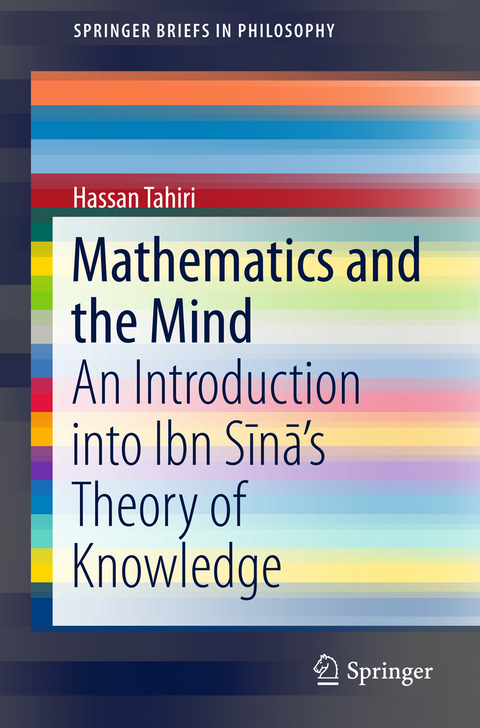
Mathematics and the Mind
Springer International Publishing (Verlag)
978-3-319-25236-0 (ISBN)
This book examines how epistemology was reinvented by Ibn Sina, an influential philosopher-scientist of the classical Islamic world who was known to the West by the Latinised name Avicenna. It explains his theory of knowledge in which intentionality acts as an interaction between the mind and the world. This, in turn, led Ibn Sina to distinguish an operation of intentionality specific to the generation of numbers.
The author argues that Ibn Sina's transformation of philosophy is one of the major stages in the de-hellinisation movement of the Greek heritage that was set off by the advent of the Arabic-Islamic civilisation. Readers first learn about Ibn Sina's unprecedented investigation into the concept of the number and his criticism of such Greek thought as Plato's realism, Pythagoreans' empiricism, and Ari
stotle's conception of existence.Next, coverage sets out the basics of Ibn Sina's theory of knowledge needed for the construction of numbers. It describes how intentionality turns out to be key in showing the ontological dependence of numbers as well as even more critical to their construction.
In describing the various mental operations that make mathematical objects intentional entities, Ibn Sina developed powerful arguments and subtle analyses to show us the extent our mental life depends on intentionality. This monograph thoroughly explores the epistemic dimension of this concept, which, the author believes, can also explain the actual genesis and evolution of mathematics by the human mind.
Chapter 1 The Reinvention of Knowledge.- Chapter 2 Ibn Sina and the Reinvention of Epistemology.- Chapter 3 Refutation of the Greek Conception of Number.- Chapter 4 Ibn Sina's Basic Theory of Knowledge: Existence, Intentionality, Memory.- Chapter 5 The Logico-Epistemic Construction of Numbers.- Chapter 6 Concluding Remarks.
| Erscheinungsdatum | 08.10.2016 |
|---|---|
| Reihe/Serie | SpringerBriefs in Philosophy |
| Zusatzinfo | IX, 76 p. |
| Verlagsort | Cham |
| Sprache | englisch |
| Maße | 155 x 235 mm |
| Gewicht | 160 g |
| Themenwelt | Geisteswissenschaften ► Philosophie ► Erkenntnistheorie / Wissenschaftstheorie |
| Geisteswissenschaften ► Philosophie ► Philosophie des Mittelalters | |
| Mathematik / Informatik ► Mathematik ► Logik / Mengenlehre | |
| Schlagworte | Criticism of Euclid's conception of plurality • Criticism of Euclid’s conception of plurality • Criticism of Plato's realism • Criticism of Plato’s realism • Criticism of the Pythagoreans' empiricism • Criticism of the Pythagoreans’ empiricism • Epistemology • essence as invariant • Greek conception of number • Humanities, Social Sciences and Law • Mathematical Logic and Foundations • Medieval Philosophy • Numbers as intentional objects and their intention • Numbers as intentional objects and their intentional existence |
| ISBN-10 | 3-319-25236-4 / 3319252364 |
| ISBN-13 | 978-3-319-25236-0 / 9783319252360 |
| Zustand | Neuware |
| Haben Sie eine Frage zum Produkt? |
aus dem Bereich

![Was heißt Denken?. Vorlesung Wintersemester 1951/52. [Was bedeutet das alles?] - Martin Heidegger](/media/113619842)
